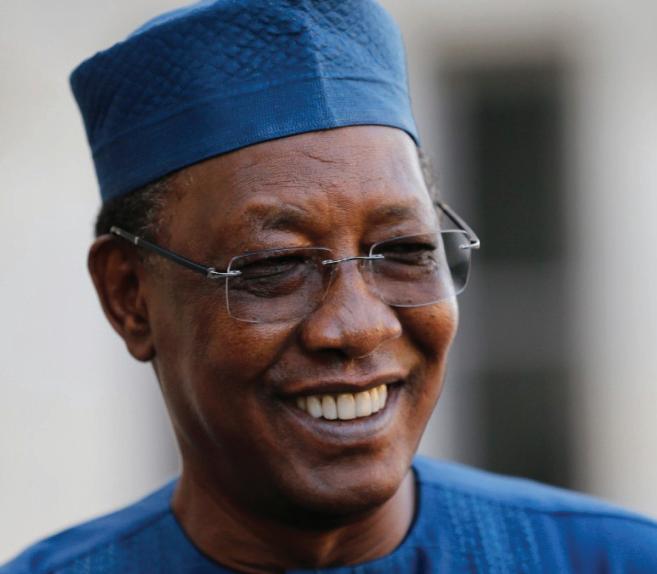
18 minute read
Ramadan during COV ID-19: Is it safe ti fast?
•The Prophet Muhammad (peace be upon him) said:
“There is a (place) in paradise . . .prepared for those who are polite in their speech, provide food (to the needy), fast frequently, and (pray) when (other) people are asleep.” Al-Tirmidhi
Advertisement
Ramadan during COVID-19: Is it safe to fast, get vaccinated?
By Saba Aziz, Globalnews
For a second consecutive year, Muslims around the world are observing the holy month of Ramadan amid the COVID-19 pandemic. Ramadan is the holiest Islamic month for Muslims, in which they refrain from eating, drinking, smoking and engaging in any sexual activity from dawn to sunset. In Canada and elsewhere, Tuesday marked the beginning of Ramadan, which is determined by the sighting of the new moon. We asked some medical experts about what fasting does to your body, what to expect with COVID-19 in the mix again this year and vaccinations during Ramadan.
What are the health benefits of fasting?
There is a growing body of research that shows multiple health benefits of fasting. Experts say it can help control blood pressure, reduce cholesterol levels, hypertension, obesity, inflammation in the body, decrease blood sugar levels and increase metabolism. “When you first start off in the month, there’s a shock to the system, said Dr. Balal Lone, a family physician and board member of the Muslim Medical Association of Canada. “It does take a little bit (of time) for the body to get used to, but then as the month progresses, you develop into a steady state.”
How to take part in a healthy, active Ramadan?
Some studies show that fasting is also good for mental health as it can reduce depression, anxiety and the risk of dementia, Lone added. “There is evidence that fasting can actually help regenerate some of the brain cells, so you actually have better cognition and cognitive memory,” said Dr. Aisha Khatib, assistant professor with the Department of Family and Community Medicine at the University of Toronto. Fasting during Ramadan also gives Muslims a chance to cut out unhealthy habits, like smoking or consuming too much caffeine, she added. “It’s almost like you’re detoxing your system,” Khatib said.
What are the risks of fasting?
However, it is not uncommon for people to indulge in fatty, fried foods and binge eat after a long day of starvation. “There always is that risk of putting on weight if you’re not careful with what you’re eating,” said Khatib. Muslims honour Ramadan in the midst of COVID-19 pandemic She recommended a protein-rich meal in the morning to keep the energy levels up throughout the day and eating fruits and vegetables to replenish and hydrate when breaking the fast in the evening. There are also increased risks of fasting for people with advanced cardiovascular disease, chronic kidney disease and those who suffer with uncontrolled diabetes, Lone said. Hence, it is important to seek the medical advice of your healthcare provider about whether you can safely fast.
Can you fast with COVID-19 symptoms?
Sick people, the elderly, pregnant, menstruating and nursing women are exempt from fasting, according to the Quran. Most people who get COVID-19 develop mild symptoms or are asymptomatic, so they should be able to fast without difficulty, Khan said. However, if you are battling more severe symptoms, then it is permissible to skip the fast, or break it if your health deteriorates while fasting, he added. Khatib agreed. “If you have COVID-19, if you’re having symptoms and you’re feeling unwell, that could actually put yourself at risk of hav ing a more severe disease or feeling more unwell from it,” she told Global News. Muslims can make up for the missed fast within a year after Ramadan or give charity instead. In all cases, you should consult your doctor if you are unsure whether fasting is safe for you, or your local Imam (religious scholar) if you are unsure about exemptions to the fast, according to Ramadan guidelines published by the Canadian Muslim COVID-19 Task Force (CMCTF). A Mississauga husband-wife duo spread joy with their inflatable decor for Ramadan and Muslim holidays
What is the impact of fasting on COVID-19?
There is no evidence to suggest that fasting could increase or decrease the risk of developing COVID-19 illness. “The risk is related to being exposed to someone who’s around you without enough measures in place, so enough Canadian Muslims should be able to fast, safely, as long as they’re not being exposed to others,” said Dr. Hashim Khan, a respirologist and medical co-chair of CMCTF. “And it (fasting) doesn’t necessarily increase their risk of developing COVID-19 or catching the virus responsible for it.” Fasting does not have a negative impact on our immune system either, Khatib added. “In fact, with fasting, it has shown to decrease inflammation generally and over time it can even help improve the immune system.”
Can you get a COVID-19 vaccine and test while fasting?
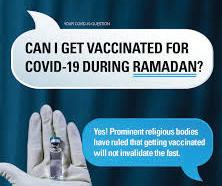
Yes, you can get the vaccine and take a COVID-19 test while fasting. Consuming any form of food and medication or drinking fluids is not permitted while fasting, but vaccinations and testing, which are not a source of nutrition, are acceptable. “From a religious standpoint, there’s nothing that a vaccine intramuscularly, such as COVID vaccines are, would invalidate the first,” Lone said. “The same goes for other vaccines as well.” In the United States, Islamic leaders are using social media, virtual town halls and face-to-face discussions to spread the word that it’s acceptable to be vaccinated for the coronavirus during daily fasting. Khatib said if you are scheduled to get vaccinated, make sure to hydrate well the night before and in the morning. It is not uncommon to experience some side effects after vaccination, such a fever, body aches and sore arm. If the effects are intolerable to the point that medication is needed then it is OK to break the fast, Khan said. “If you do have a reaction or if you do feel unwell after your vaccine and you don’t feel that you can carry on fasting, it’s perfectly fine to break your fast and make your fast up another day,” Khatib said. If possible, Khatib said it is also a good idea to opt to get the vaccine later on in the day so that it is closer to the end of the fast, so that you won’t have to purposely break it if there are some side effects. Source: globalnews.ca/news
COVID-19 vaccination won’t break your fast this Ramadan, say experts
By: Sara Jabakhanji · CBC News · Experts on Islam, health field questions from Muslim community about what’s acceptable during the month. Aarij Anwer, interim imam and Islamic education co-ordinator with the London Muslim Mosque, said community members have asked him if they are permitted to get vaccinated while fasting. “The question very frequently asked is, “I got an appointment during the fasting hours. Can I take the vaccine while fasting?” The answer is, “Yes, you should take it as it does not affect the fast.”
Tackling misinformation
Anwer said he’s trying to tackle any confusion and misinformation, as well as encourage Muslims to get vaccinated. “That is something that we are encouraging Muslims to take, as part of their commitment to their faith, as part of their commitment to their well-being.” Referring to Islamic agencies in North America and internationally, Anwer said there is the understanding that “non-nutritious injections, for example vaccines, have no effect on the fast and will not invalidate the fast. A person can take this and their fast will continue to be intact.” Nour Al-Farawi, a primary-care nurse practitioner, said it’s important for everyone, including Muslims, to get vaccinated as soon as they’re able to, even if it’s during the
month of Ramadan. ”It is well established that intramuscular injection is not a form of sustenance or food, and therefore is permissible,” he said. ”I do want to stress we are in the third wave of this pandemic and it’s important, now more than ever, to keep ourselves and others around us safe and healthy, and this vaccine rollout is unlike any we may have experienced in the past,” she said. Source: cbc.ca/news
Ramadan will happen twice in 2030 and here’s why there’s no reason to worry
By: David Bentley SEO Content Writer The holy month of fasting will occur twice in 2030 as lunar and solar differences bring an unusual double celebration that is sure to cause some confusion Ramadan is coming with the exact date it starts in 2021 to be confirmed by sightings of the first faint crescent of the new moon. But in 2030, the holy month will occur twice in one year: once in January and then again in December. It may sound bizarre, impossible or even outright crazy but it’s correct, even though it will mean two periods of fasting within one year. The reason for this unusual occurrence is that Islamic dates follow the lunar cycle. A lunar year is 354 days, shorter than the 365 days of the solar-based Gregorian calendar used by much of the western world. So this means that all Muslim dates appear to move back by about 11 days a year. In 2021, Ramadan is expected to start on April 13, depending on the visibility of the moon. And in subsequent years it will get earlier and earlier. The predicted date for the start of Ramadan 2022 is April 2, while in 2023 it will begin on March 23 and so on. So, by 2030, it will fall in January. But because the Islamic year is shorter than the western year, it will also come round again at the end of that year. The Saudi Arabian calendar for 2030 on the website timeanddate.com explains that Ramadan is likely to be observed on January 6, 2030, followed by Eid al-Fitr on February 5, and then a second Ramadan starting on December 26. Sheikh Yahya Safi, Imam of Lakemba Mosque in Sydney, Australia, delivers an Eid al-Fitr prayer to a reduced congregation practising social distancing, during a live online prayer event on May 24, 2020 Hassan Ahmed Al Hariri, chief executive officer of the Dubai Astronomy Group, told Gulf News that observing two Ramadans in one year was not as strange or unnatural as it sounded but was down to the way calendars are worked out. He said: “The solar calendar and the lunar calendar run separately from each other and are different. The solar one is fixed with the sun, while the lunar calendar is always 11 days shorter. So having two Ramadans is a natural result of having two different calendars. “Calendars were invented by humans so we could use them as a benchmark and count the time. People should see the two Ramadans as a natural thing.” Ramadan is the ninth month in the Islamic calendar and sees devout Muslims fasting every day between early morning and sunset. They are not allowed to eat, drink, smoke or indulge in sexual activity during daylight hours, and must instead dedicate their time to prayer, religious study and spiritual reflection. Ramadan is regarded as the holy month because it is when the Quran was revealed to the prophet Muhammad. Source: birminghammail.co.uk
N AT & I NT NEWS
PM Trudeau ‘hopeful’ he’ll be able to travel internationally for G7 in June Sikh group demands probe of hate bias in Indianapolis rampage
OTTAWA -- Prime Minister Justin Trudeau says he is “hopeful” that he will be able to travel internationally come June, so he can attend the G7 Leaders’ Summit in the United Kingdom. “I’m certainly hopeful that we’ll be able to attend in person. I know there are continuing to be restrictions and concerns, but as we get closer to June, hopefully it’ll become clear that I will be able to attend in person,” Trudeau told reporters on Tuesday. Canada’s international travel restrictions were just extended until at least late May, including a mandatory 14-day quarantine upon entering Canada from abroad. It remains to be seen whether the domestic border controls will be loosened by the time the prime minister is looking to get on a plane, or whether the federal government rapidly moves on a policy update to allow people who are vaccinated to travel with more ease. Since the COVID-19 pandemic was declared, the federal government has advised against any non-essential travel and
Trudeau has not left the country. Trudeau participated in the 2020 G7 leaders’ meeting virtually, but with global vaccination rates growing, including in the U.K., the nation is looking to host other world leaders to discuss how to “help the world build back better from the COVID-19 pandemic and create a greener, more prosperous future,” between June 11 and 13.“We’re going to make a final decision when the time comes,” Trudeau saidSource: vancouverisland.ctvnews.ca ‘We hope to help a little more’: Biden says he spoke to Trudeau about more vaccines
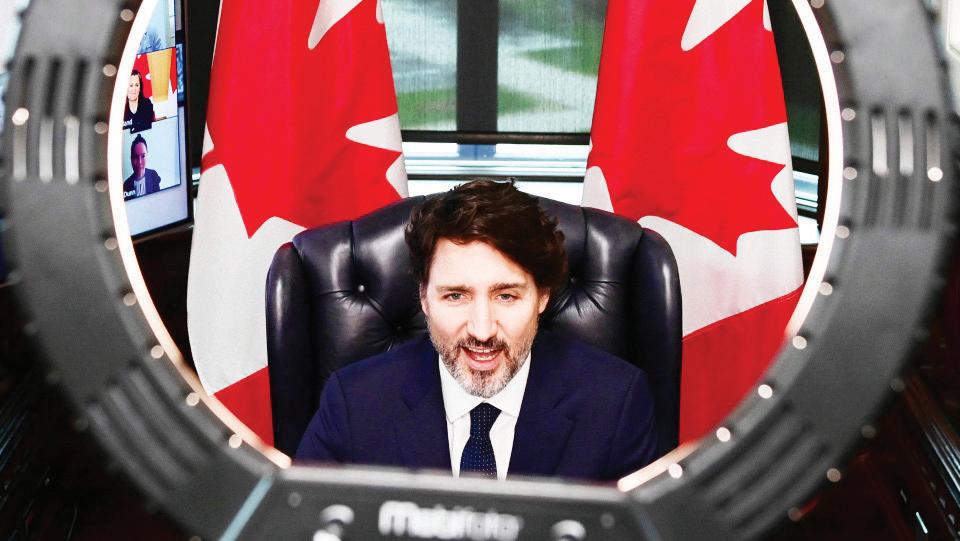
WASHINGTON -- U.S. President Joe Biden says the United States plans to provide Canada with more help in procuring COVID-19 vaccines. Biden says he spoke today with Prime Minister Justin Trudeau on the subject. He says the White House is looking at what to do with vaccines that aren’t currently in use in the U.S. That’s likely a reference to the Oxford-AstraZeneca shot, which has been approved for use by Health Canada but not by the U.S. Food and Drug Administration. The U.S. has already provided Canada with about 1.5 million doses of the AstraZeneca vaccine, and gave 2.5 million doses to Mexico. The president says he spoke with Trudeau
today for about half an hour, describing him as someone who is working hard to help his country deal with the pandemic. Source:ctvnews.ca Three confidence votes to determine fate of minority Liberal government OTTAWA -- A pair of proposed changes to Liberal government needs the backing of the federal budget put forward by opposition at least one of the three main opposition parties will determine whether the minority parties to survive a vote of confidence and Liberal government will fall, triggering a avoid the imminent possibility of tumbling process that could culminate in an election. the country into an election campaign as The government said it has informed op- it juggles the COVID-19 pandemic and an position parties that two votes in the House economic recovery.Three New Democrats of Commons -- on a Bloc Quebecois sub- will vote in favour of the Bloc’s sub-amendamendment Wednesday and a Conserva- ment that seeks to beef up health transfers tive amendment Thursday -- are considered and old security payments, but the rest of the confidence votes.A third opportunity to pass 24-member NDP caucus will vote against it judgment on the massive budget comes next in order to prop up the government on a conMonday, when the House votes on the main fidence matter, said Leader Jagmeet Singh. motion to approve the government’s budget Source:ctvnews.ca policy.. Prime Minister Justin Trudeau’s PM, opposition leaders booking AstraZeneca COVID-19 vaccine appointments
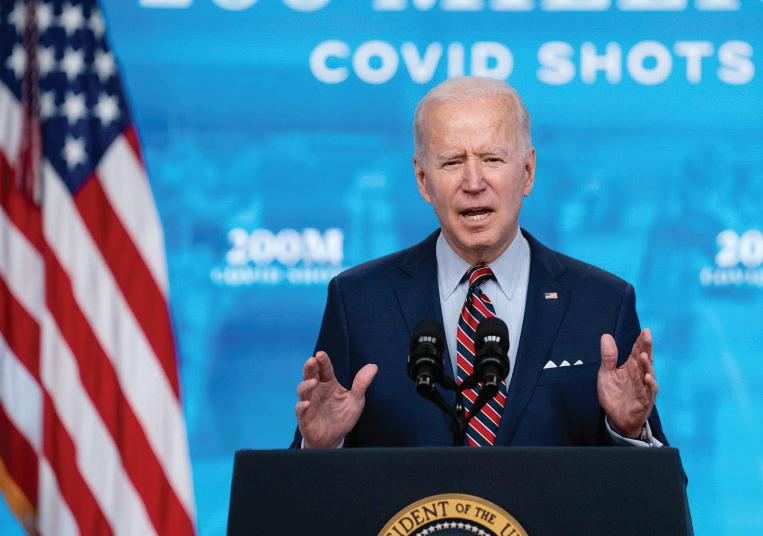
Continued from Page 1
the plans for that.” Answering a similar question during a virtual meeting with pharmacists Tuesday morning, Freeland said she too, is looking to get into a pharmacy soon to receive an AstraZeneca vaccine. “I’m going to get vaccinated as soon as I can,” she said. “I got my kids to get on the computer and they are working to make an appointment
for me and my husband. My daughter said we’re on a waitlist so I have to check on that.”Conservative Leader Erin O’Toole has had some luck already, telling reporters he has an appointment to be vaccinated this weekend.“I think it’s important for Canadians to get a vaccine when they can, do your part. We’re all frustrated by the fact that Canada doesn’t have sufficient supply,” O’Toole said. “But, it’s important when you can, get your vaccination, follow health rules, be part of us getting rid of the COVID-19 virus and getting Canadians back to work.” According to his office, NDP Leader Jagmeet Singh managed to secure an AstraZeneca vaccine appointment in Ottawa on Wednesday.Green Party Leader Annamie Paul is also looking to get her shot in Toronto where she lives, with plans being made to publicize it when she does. Ontario and other provinces have opened up their eligibility following reports of AstraZeneca doses sitting unused on pharmacy shelves, which some physicians and pharmacists have attributed to an increased amount of vaccine hesitancy surrounding the AstraZeneca shot due to concerns over the rare risk of blood clots. Source:ctvnews.ca/politics ” Indianapolis: Half of the eight workers shot to death at an Indianapolis FedEx facility by a former employee before he killed himself belonged to the Sikh religious community, leading an advocacy group to urge a probe of possible racial or ethnic hatred as a factor. Law enforcement officials said they have yet to determine what motivated the gunman, 19-year-old Brandon Hole, who was white, to carry out Thursday night’s rampage, at a FedEx operations centre near Indianapolis International Airport. The attack in Indiana’s state capital, the third most populous city in the Midwest, was the latest in a spate of at least seven deadly mass shootings in the United States over the past month. It came a little over a year after Hole was briefly placed under psychiatric detention by police when his mother reported her concerns that he was contemplating “suicide by cop,” according to the FBI. A shotgun was seized from his home. FBI agents who interviewed the teenager last April found no criminal violation at the time and determined he possessed no “racially motivated violent extremism ideology,” said Paul Keenan, special agent in charge of the FBI’s Indianapolis field office.
But the New York-based Sikh Coalition, a civil rights advocacy group, called for a full investigation into “the possibility of bias as factor” in the FedEx killings. Four members of the Sikh faith — three women and a man — were among the dead in Thursday night’s shooting spree, and at least one Sikh individual was wounded, said Gurinder Singh Khalsa, a businessman and leader of the local Sikh community who said he was briefed by victims’ families. Singh Khalsa said the majority of employees at the FedEx site are Sikhs, whose religion originated in the Punjab region of the Indian subcontinent. Source:dawn.com Biden to pull remaining U.S. troops from Afghanistan, end America’s longest war
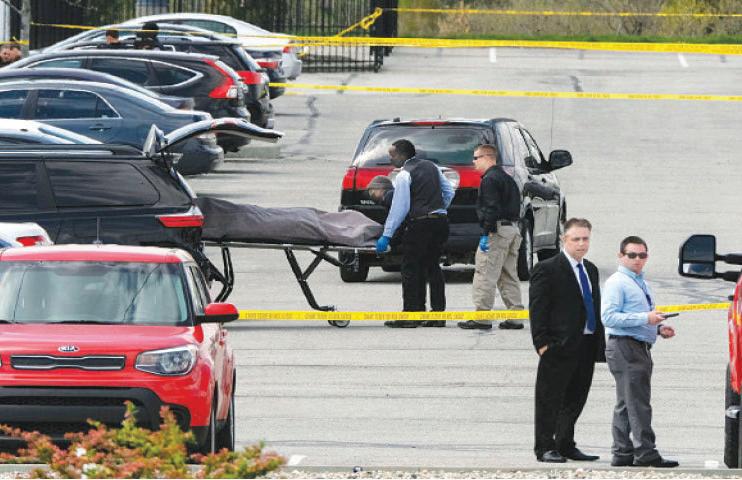
President Joe Biden said Wednesday he will withdraw remaining U.S. troops from Afghanistan, declaring that the Sept. 11 attacks “cannot explain” why American forces should still be there 20 years after the deadliest terror assault on the United States. His plan is to pull out all American forces — numbering 2,500 now — by this Sept. 11, the anniversary of the attacks, which were co-ordinated from Afghanistan. The U.S. cannot continue to pour resources into an intractable war and expect different results, Biden said The drawdown would begin rather than conclude by May 1, which has been the deadline for full withdrawal under a peace agreement the Trump administration reached with the Taliban last year. “It is time to end America’s longest war,” Biden said, but he added that the U.S. will “not conduct a hasty rush to the exit.” “We cannot continue the cycle of extending or expanding our military presence in Afghanistan hoping to create the ideal conditions for our withdrawal, expecting a different result,” Biden said. “I am now the fourth United States president to preside over an American troop presence in Afghanistan. Two Republicans. Two Democrats. I will not pass this responsibility to a fifth.” The decision marks perhaps the most significant foreign policy decision for Biden in
the early going of his presidency. He’s long been skeptical about the U.S. presence in Afghanistan. As Barack Obama’s vice-president, Biden was a lonely voice in the administration who advised the 44th president to tilt towards a smaller counterterrorism role in the country while military advisers were urging a troop buildup to counter Taliban gains. Biden has also made clear he wants to recalibrate U.S. foreign policy to face bigger challenges posed by China and Russia. Withdrawing all U.S. troops comes with clear risks. It could boost the Taliban’s effort to claw back power and undo gains toward democracy and women’s rights made over the past two decades. It also opens Biden to criticism, mostly Republicans and some Democrats, even though former President Donald Trump had also wanted a full withdrawal........Source: globalnews.ca Rebels vow to take capital after
Chadian president killed

N’DJAMENA, CHAD -- Chad’s president of three decades died of wounds suffered during a visit to front-line troops battling a shadowy rebel group, the military announced Tuesday, just hours after he was declared the winner of an election that would have given him another six years in power.While the military quickly named President Idriss Deby Itno’s son as the country’s interim leader, the rebel group claiming responsibility for his death vowed to continue its fight for the capital -- setting the stage for a potentially bloody battle for political control of the oil-producing central African nation. “Chad is not a monarchy. There can be no dynastic devolution of power in our country,” the rebels said in a statement late Tuesday. “The forces of the Front for Change and Concord are heading toward N’Djamena at this very moment. With confidence, but above all with courage and determination.”.. Source ctvnews.ca
